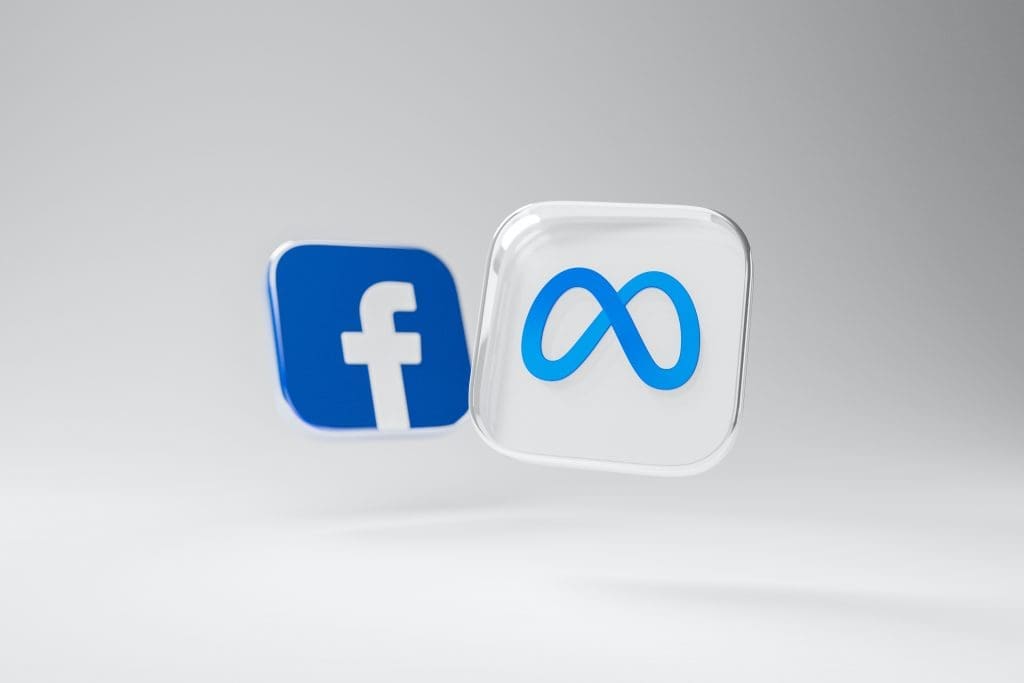As more and more people start to dive into metaverse worlds, you have to wonder which of the big players will become the ‘go to’ place for metaverse experiences. For this reason, we have decided to explore the battle for the metaverse and some of the leading metaverse companies, projects and examples right now.
An analogy with physical media
Over the years we’ve seen fierce competition via format wars such as VHS vs Betamax, Minidisc vs Mp3, Blu-Ray vs HD-DVD.
Although many of these formats ultimately do the same thing, the format and way of transmitting data will typically end up settling on just one.
Is it reasonable to expect metaverse platforms to encounter similar battles for supremacy? In order to predict who will win the metaverse race, let’s take a look at the competition and some metaverse examples.

Battle for the metaverse. Photo by James Yarema on Unsplash
Meet some of the metaverse companies and projects
So what is Meta and metaverse? As we’ve covered previously, metaverse worlds are persistent 3D worlds that are highly interactive. Although conceptually many sound the same, in reality, they often offer very different experiences.

Facebook rebranded to Meta with a new focus on metaverse experiences. Photo by Dima Solomin on Unsplash
Facebook (aka Meta)
As for Meta, Meta is the name of Mark Zuckerberg‘s technology company previously known as Facebook. The company will be focused on building future metaverse technologies and experiences.
Facebook may seem like an odd or ideal company to start with depending on your perspective.
With an ever-increasing number of users now getting involved with the metaverse and associated technologies and global spending on VR/AR increasing being expected to increase from $12 billion in 2020 to $72.8 billion in 2024, Facebook seem ideally placed to win the race. But, why?
- Firstly, they are a global household name and the shift in rebranding to Meta can’t be underestimated
- Facebook are already one of the leading social media platforms, so they seem ideally placed to take advantage of Social Media 2.0 and metaverse social media marketing
- Facebook started making moves into virtual worlds when the company acquired Oculus in 2014, so one might argue they were ahead of their time and saw the metaverse coming
Putting Facebook to one side for now, let’s take a look at some of the biggest metaverse projects and find out more about what exactly they offer.
Decentraland
This is a good example of a metaverse experience that doesn’t require a VR headset in order to jump in.
In fact, at the time of this writing, there isn’t a compatible VR experience for Decentraland, although that is said to be coming later in 2022.
Decentraland is a browser-based metaverse platform which has its own cryptocurrency called MANA. Users can use MANA to purchase digital property via NFTs using the Ethereum blockchain.
There are both simple and advanced tools available to allow users to create scenes, pieces of art, unique challenges and more.
Key Features
- Has its own cryptocurrency (MANA)
- Buy digital property via NFTs
- Thriving community
- Uses Ethereum blockchain
- Powerful creation tools
Axie Infinity
As a blockchain-based trading and battling game, Axie Infinity is a bit different from other options here as it focuses more on gaming, allowing NFTs of monsters to be purchased that players can collect and battle with. Players can earn tokens called SLP tokens that can be used to trade, or breed more powerful collectible pets / monsters.
Many think of Axie Infinity as a play-to-earn game and perhaps not part of the metaverse. There are also some negatives that may put some newer users off. In order to play, you must have a team of 3 Axies. The cheapest at the moment is in the region of $30 each so you will need to spend a bit of money in order to start playing.
Key Features
- Play-to-earn system
- SLP tokens used for gameplay
- Creative take on NFTs
- Has its own currency (AXS – Axie Infinity Shards)
- Fun and addictive gameplay
The Sandbox
Another Ethereum-based digital environment that is utilising NFTs is The Sandbox. The Sandbox is a virtual user-generated world that allows users to create games that they can monetise.
The native token is SAND. SAND is a ERC-20 utility token which is used for transactions, staking and governance.
Other token types available here are LAND and ASSETS.
LAND, as the name suggests, allows creators to buy up a slice of digital real estate on the blockchain. This can be then populated with games and other assets.
ASSETS is a token used to create user generated content and voxel-based assets via VoxEdit and upload them to the marketplace.
With a strong focus on LAND and ASSETS, we feel metaverse SEO will end up playing a huge role with platforms like The Sandbox.
Key Features
- Several token types for players and creators — SAND, LAND and ASSETS.
- Lots to do, great for creatives
- NFT marketplace
- Free powerful game creation tools
Back to Facebook with Meta / Horizon Worlds
We can expect Meta to release new projects and technologies in the coming years, but for now, the main metaverse experience they offer is Horizon Worlds.

Meta Quest 2 – Photo from https://www.meta.com/gb/quest/products/quest-2/
Horizon Worlds is a social experience that allows users to partake in the creation of various games and designing the environment around them.
Horizon Worlds is currently a VR experience ideal for Oculus devices, but Meta says that eventually a VR headset won’t be a requirement.
A release date of December 9th 2021 allowed users in the U.S and Canada to experience Horizon Worlds, however there is still no release date for users elsewhere.
Sadly things seem to be off to a turbulent start for Meta’s social experience. Initial user reviews suggest that load times have been a problem in addition to some of the games lacking the polish that can be seen in other VR apps.
Key Features
- Fun way to connect people through VR
- Collaborative fun projects to take on
- Allow you to be creative in new ways
- Backed by Meta
- Sense of exploration for users
Conclusion: will Facebook’s shift in focus and rebrand give Horizon Worlds lead them to win the battle for the metaverse?
As you probably know by now, Facebook announced its rebrand to Meta in October of 2021 signalling a shift from conventional social experiences, to VR AR and XR experiences.
After spending $10 billion on the metaverse in 2021, it’s obvious that Meta is serious about the future of the metaverse and VR experiences.
We knew that already after Facebook’s acquisition of Oculus back in 2014. Facebook likely had a vision for the metaverse as early as the 2010s when we trace back their rebrand and then their purchase of a leading VR hardware company.
Meta has the benefit of having a huge user base through Facebook and Oculus devices allowing them to reach billions of users instantly with updates and marketing.
Does all of this mean the metaverse is an easy win for Meta?
Not exactly. Funding and marketing are obviously a key part in any business endeavour, but ultimately it comes down to the product or service that you are offering.
As it stands at the moment, Meta has a long way to go if they want to entice their casual audience to get involved with metaverse worlds or new social experiences. Other platforms such as Decentraland and The Sandbox are already established metaverse projects.
That said, Meta have repeatedly said they are committed to VR and the metaverse for the long haul and users should expect new metaverse experiences and improved VR hardware as the years progress. For this reason, we think Meta will continue to be one of the most important metaverse companies to keep an eye on.
This article is part of our latest series on the metaverse and what this means for businesses. To jump straight to one of our other titles, please feel free to browse below:
- What Is the Metaverse & What Are NFTS? What Does This Mean for Business?
- Are The Metaverse And Virtual Reality The Same Thing? What About XR & MR?
- Is Metaverse Social Media Marketing a Trend to Watch in 2022?
- Is Metaverse SEO (Or Should We Say Meta SEO) The Future of Search Marketing?
- Should Businesses Think About Metaverse Marketing as Part of Their Digital Strategy?
- Leading Metaverse Companies, Projects & Examples: Who Will Win the Race?
Back in 2016, we explored companies making inroads to virtual reality and whether Oculus had lost the race. You may find this an interesting read as well.
What are your thoughts about the metaverse? Have you tried any metaverse experiences yourself? Be sure to let us know in the comments.






Hey, thanks for sharing this information. I know metaverse is going to be the next big, and there will be more projects in the coming future. Will be looking forward to detailed articles on these projects separately.
Thanks for the comment, we like to look ahead… Even before the term “metaverse” existed, we saw a future for VR and explored this in detail. For us, the metaverse and blockchain technologies like crypto and NFTs provide the infrastructure for VR and similar technologies to become truly successful.